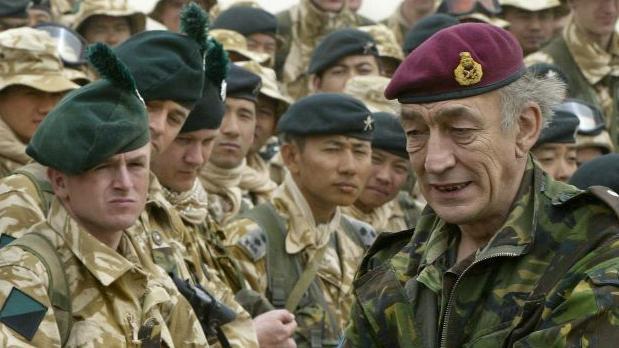General Sir Mike Jackson, the former head of the British Army, passed away at the age of 80, leaving behind a significant legacy marked by his leadership during pivotal moments in modern military history. Known for his role during the US-led invasion of Iraq in 2003, Jackson’s career also encompassed crucial assignments in the Balkans and Northern Ireland. His character was shaped by his military upbringing and experiences throughout the Cold War, where he distinguished himself in various capacities, including being a skilled linguist in Russian while serving in the Intelligence Corps. Jackson’s tenure as the British Army’s chief, beginning just before the Iraq war, cemented his reputation as a courageous leader who was both respected and adored by his troops and the public alike.
One of the defining moments of Jackson’s career occurred in 1999 when he made headlines for his courageous decision to refuse an order from US General Wesley Clark to confront Russian troops entering Kosovo without NATO’s consent. His refusal, described in a reported statement—”I’m not going to start the Third World War for you”—demonstrated his commitment to international protocols and showcased his ability to prioritize measured decisions over impulsive military action. Such decisions would later shape his command style as he led during some of the most contentious military operations of the late 20th and early 21st centuries.
Born into a military family on March 21, 1944, Jackson enlisted in the army at just 19, later achieving his degree from Birmingham University in 1967. His early military service included a transfer to the Parachute Regiment, where he played a crucial role during the Troubles in Northern Ireland. His involvement in significant events, including the tragic Bloody Sunday incident, left a lasting impression on his career and shaped his views on military engagement. Even as he faced scrutiny for past events, such as the Ballymurphy inquest, Jackson remained transparent, adamantly denying any allegations of cover-ups regarding the conflicts.
During his rise through the ranks, Jackson commanded the Parachute Regiment’s First Battalion and later led the UN peacekeeping force in Bosnia from 1995 to 1996. His exemplary leadership during the Kosovo campaign earned him the Distinguished Service Order, highlighting his military acumen. Appointed as the chief of the British Army shortly before the Iraq war began in March 2003, he faced the formidable task of guiding British forces through a controversial conflict that would have lasting global ramifications. His charisma and direct communication style earned him the affectionate nickname “Jacko” among his peers and subordinates.
Jackson’s legacy extends beyond his military accomplishments; he was also a family man, survived by three children from two marriages and four grandchildren. His approachable demeanor and genuine affinity for those under his command have endeared him to many. Following his death, the British Army expressed profound sorrow and admiration for Jackson, noting how greatly he would be missed and the indelible mark he left on those who had the privilege of serving alongside him.
Tributes poured in from military organizations, including the Parachute Regimental Association, which highlighted his exceptional leadership qualities and the substantial impact he had on those he led. As the military community comes to terms with the loss of a revered leader, Jackson’s life story serves as a reminder of the complexities and challenges faced by military leaders during turbulent times in history, as well as the human connections forged in the pursuit of duty and service. His memory will undoubtedly be preserved as a cornerstone of British military history, cherished by friends, family, and those who served under his command.

